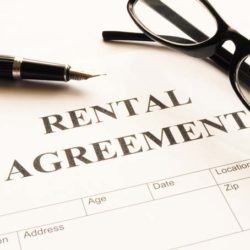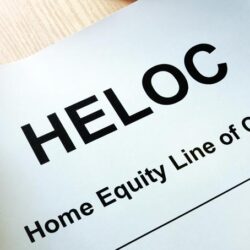Three new tax and corporation laws were introduced in Costa Rica in 2019. We weren’t planning on covering these because they are so new that it’s premature to measure the impact on our real estate. And more importantly, we’re not lawyers or accountants so didn’t want even the appearance of giving official advice.
But that said, a reader asked a slew of questions about these new laws, so it’s clearly on your minds.
Jordan asks:
I married a Costa Rican 3 years ago and have long felt there is a lot of potential in the country. We visit 2/3 times a year from Europe and I have often wondered about investing in real estate there. I actually had a few questions that maybe you could shed some light on:
1) How has the new tax law affected investments in Costa Rica, is it still as attractive, i.e. have you just passed on the VAT to renters?
2) Do you only consider vacation rentals or would you consider renting year round to locals?
3) Is the tax burden heavy on your rental income (I think I read it’s something like 15% but is that right?).
4) Is it best to own in your own name or via a corporation?
5) Do you find that the law is favorable to you in terms of being a landlord? In France, for example, all the rights are for the renter…
Sorry for all the questions!! You guys just seem to be so knowledgeable. Thanks in advance for any further insight you can give.
Well Jordan, thanks for the vote of confidence!
The general investment questions are ones we considered ourselves before investing (in Costa Rica and other geographies), and need to reconsider in light of the new laws. As I mentioned, we are not lawyers or accountants so we are relying on our Costa Rica team for advice.
We also won’t know the impact of any changes for at least another year since the new laws came on the books mid-year, and you really need at least a full year of vacation rental data because of dramatic fluctuations in rates and occupancy levels between the low- and high-season months.
That said, here is what we know and what, if anything, changed for us.
The VAT impacts service businesses of all kinds (change #1)

Formerly, there was a sales tax, and it impacted just product businesses. As of July 1, 2019, that sales tax is now a VAT, or value-added tax, and applies to product and service businesses. The rate is 13% and is being tracked specifically on all business completed within Costa Rica. Previously since all of our renting had been done through AirBNB, and since our account was housed in the US, we filed just US income taxes. We paid Costa Rican corporation fees in Costa Rica and itemized all the revenue and expenses when we filed taxes in the US.
With the VAT, we are now charging our guests the 13% VAT, and breaking out that charge for monthly Costa Rica tax filings. Ideally, the AirBNB guests will pay the VAT on top of the nightly rate (and we are now using AirBNB to collect this charge), but it is still not clear if we will have to lower our nightly rate to maintain occupancy, since the VAT creates a higher nightly cost for the guest. Since not all AirBNB listings show this as an additional charge, some people may choose other listings over our own. We’ll better know a year from now (after a full high season and summer season) if our rates and occupancy has been affected.
On the other side, the VAT will increase our own expenses. We now have to pay our accountant to do monthly tax filings. Also, many of our own service providers, like our property managers, cleaners and maintenance companies, are charging us the 13% VAT. Depending on how your Costa Rican LLC is set up, you can deduct some or all of your VAT expenses, to offset your taxable income.
One possible upside with the VAT is that casual vacation rental owners (people who use the place personally and rent occasionally) may decide it’s too much of a hassle and pull their rentals from the market. This will decrease supply and help with rates. Again, it’s too early to tell.
The increased filing requirements prompted a change in corporation status (change #2)
We had been filing only in the US, so the Costa Rica corporations that hold our vacation rentals initially were listed as inactive. But with tracking now done on transactions within Costa Rica and not just money changing hands (which is still within our US-based AirBNB account), we have changed our corporate status to active. The tax year in Costa Rica starts in October, so the change is now becoming effective for us this month.
The related costs so far are increased paperwork, and therefore increased costs for accounting and legal to help us sort this out. We have to submit receipts and track income and expenses for Costa Rica tax filings, not just US tax filings, so there is an increase in time and effort factor. This will impact our property managers on the ground much more than us. So far, neither of our property managers have added a cost for this but who knows how other property managers will handle?
There is yet an additional new law for corporations (change #3)
The third change isn’t related to tax, but rather it’s a disclosure requirement that all Costa Rican corporations must register who the shareholders are. If you were hoping to stay anonymous by purchasing as a corporation, you don’t really have that option anymore because individuals still have to disclose their share ownership.
We have been filing our activity anyway in the US so the need to register doesn’t affect us, but we did have to pay additional legal costs to get this done. We didn’t structure our purchases via a corporation for anonymity, but for liability protection. In the US, it is optimal for liability purposes to own as a business rather than as an individual.
When I was doing research on whether to own in Costa Rica as a corporation or as individuals, I had heard from multiple people that liability lawsuits are uncommon in Costa Rica and therefore the benefit of a corporation was in the anonymity, not liability protection. Well, that anonymity advantage is gone with this new disclosure requirement, so one could argue there is no benefit to buying as a corporation. However, since we were buying vacation rentals that would have both Costa Rican and international guests, we picked corporate status as an additional layer of liability protection.
In addition, we used our self-directed retirement account to purchase two of our vacation rentals, and the purchase, management and ultimate sale (if/when that happens) need to all be arms-length transactions. Therefore, we picked corporation status so every part of the transaction and ongoing management of these properties would be truly arms-length. Our retirement trust owns the shares of the Costa Rican corporation that owns these two properties.
For our third vacation rental, our US-based LLC owns the shares of the Costa Rican corporation that owns that third property. It is a separate and distinct Costa Rican corporation from the one that owns the other two properties because we didn’t want any mingling of retirement and non-retirement accounts.
Obviously, our decisions were made based on our unique situation – how we financed what we bought, what our risk appetite for liability is, what US regulations are relevant. You would need to look at your own circumstances and get the tax, legal and other professional support specific to your situation.
Will we change our real estate strategy because of the new laws?

As I mentioned before, vacation rental performance fluctuates a lot in terms of rates and occupancy, so we really need to look at a full year of data at least before seeing patterns that may warrant changes. We had considered long-term rentals when we opted to do vacation rentals, and we continue to pay attention to trends in long-term renting. However, for now we’re sticking with the vacation option.
For the one unit outside our retirement account, we like to use it personally. We just spent one month here and plan to expand this to two or three months in the future. We couldn’t do that with a long-term rental.
For all of our units, even the other two that we don’t use personally, what we can charge for vacation stays is much higher than for long-term stays. Of course, expenses are higher – wear and tear is greater, household linens and other items need to be replaced more frequently, more furniture needs to be purchased, we cover utilities. However, our rentals are located in Tamarindo and Langosta, which are both prime tourist places. The demand for vacation stays is high and supports keeping our rentals as vacation rentals.
Of course, you have to run the numbers based on where you buy, what you want to spend and how much involvement you want in the day-to-day. Long-term rentals may make sense for you, and they may make sense for us at some point. There is a lot of interest from potential retirees to expatriate to Costa Rica (even for us, Costa Rica is our early retirement option). The retirement allure is one of the reasons we felt Costa Rica was a good long-term investment, and if we target retirees more specifically in the future, longer-term rentals may make more sense at that point.
Are the laws in Costa Rica favorable to landlords or tenants
The last question from Jordan is whether the law is favorable to landlords or tenants in Costa Rica.
We are unfortunately unable to answer the question at this time because our rental are short term only. We don’t have experience with long term rentals and this topic has not come up in our conversations with realtors, lawyers or other property owners. If we uncover information on this topic, we’ll write about it here on the blog.
We agree this is an important topic, and one that should be further researched before diving into long term rentals. This question was certainly a factor in our own decision-making about where to buy in the US, where tenant-landlord provisions are set at the state level, not at the national level.
Real estate investing is not a set-it-and-forget-it proposition

We have to wait and see what, if any, impact the new Costa Rica VAT tax and other business changes will have on our vacation rental numbers. That said, real estate investing anywhere (Costa Rica or otherwise) and in any form (vacation rentals or other type of asset) is something you have to regularly monitor. Tax laws change, and this may cut into revenues, or it may decrease competition by scaring others away and actually improve revenue. Other regulations change, and you may need additional legal help. Markets change, and you may need to refine your pricing, change up your marketing, or sell altogether.
We picked real estate because it can be a money-maker, and we enjoy it. When there is a setback – for example, the added effort due to the new laws – we press on because there are enough other aspects about real estate that keep us interested.
======
If it’s just about another investment, it’s easier to buy a market-traded security. These are more liquid and require lower costs to entry. But if you enjoy real estate and if you want to be in Costa Rica anyway (two criteria that described us), then the new tax laws are just another step in the process. It’s definitely been worth it for us so far!


 We are Scott and Caroline, 50-somethings who spent the first 20+ years of our adult lives in New York City, working traditional careers and raising 2 kids. We left full-time work in our mid-40’s for location-independent, part-time consulting projects and real estate investing, in order to create a more flexible and travel-centric lifestyle.
We are Scott and Caroline, 50-somethings who spent the first 20+ years of our adult lives in New York City, working traditional careers and raising 2 kids. We left full-time work in our mid-40’s for location-independent, part-time consulting projects and real estate investing, in order to create a more flexible and travel-centric lifestyle.  Financial independence and early retirement is not something we originally focused on, but over time realized it was possible. Our free report,
Financial independence and early retirement is not something we originally focused on, but over time realized it was possible. Our free report, 








Hi – Great information above, but did you see that CR now imposes a 15% income tax on rentals, which can be reduced only by 15% of related expenses, so it’s an effective 12.5% income tax. Is this your understanding? Thx, Marc
Hi Marc – our understanding is that the 15% income tax on rentals was always there, so that is why we didn’t include it in the post. The recent change is that more and more people have registered their business as ‘active’ (especially given the changes in the business law) and are now declaring the income. Yes, there is a default limit of 15% of expenses allowed to offset the income, but depending on how you structure the business and how it operates, there are ways to deduct the full 100% of expenses – depending on the size and scope of the business however, those options may not make sense. Best thing to do is discuss with a local accountant in Costa Rica.
Hello,
I’m in the process of buying a property in Costa Rica with a partner. We both have families, intend to use the property during a portion of the year, and rent it the rest of the year. Because of the partnership arrangement, we will be purchasing it with a Costa Rican LLC. I noticed that one of your structrues includes a US LLC owning the CR LLC. Can you explain more about that structure? For example, are the various terms for use, ownership, maintnance, capital contributions, buyout, etc. spelled out in the US or CR operating agreement?
Thanks.
We have very simple structures for both LLC’s on the US and CR side b/c we’re just one household. My guess (and it’s just a guess) is that you need to have both the US and CR LLC’s specify the rights of each party so that you’re covered regardless of where a dispute is filed.
Hi. Reading this now in 2023 and having a couple years of data, can you give us an update on how the VAT has worked out for you? Thanks!
Our rental rates have gone up (we use AirDNA to get a sense of prices and frequently use their suggestions) so we still have similar profit margin to before.